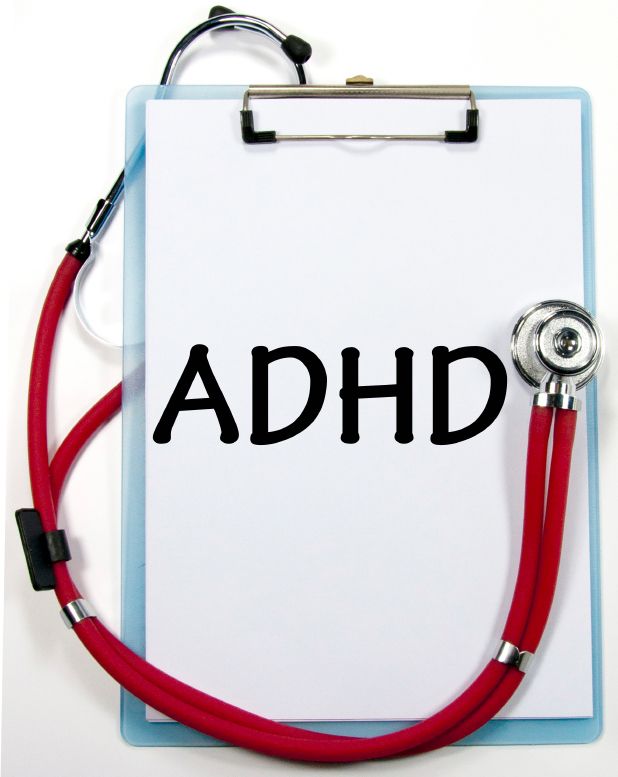I Think I Have Adult ADHD – What Should I Do Now?

Table of Contents
Understanding the Symptoms of Adult ADHD
Adult ADHD symptoms often differ from those seen in children. While hyperactivity might be less pronounced, challenges with focus, impulsivity, and organization remain significant. It's crucial to understand that these symptoms aren't simply signs of laziness or poor character; they are often the result of neurological differences. Common symptoms of Adult ADHD include:
-
Difficulty Focusing and Maintaining Attention: Struggling to concentrate on tasks, easily distracted by irrelevant stimuli, frequently losing train of thought. This can significantly impact work performance, relationships, and daily routines. This is often referred to as inattentive ADHD.
-
Hyperactivity or Restlessness: Feeling internally restless, fidgeting excessively, difficulty sitting still for extended periods. While overt hyperactivity might be less common in adults, internal restlessness and an inability to relax are frequent experiences.
-
Impulsivity: Acting without thinking, making hasty decisions, interrupting conversations frequently, struggling to control emotional responses. Impulsivity can lead to problems in various aspects of life, including finances and relationships.
-
Disorganization and Time Management Challenges: Struggling to prioritize tasks, procrastinating excessively, misplacing items frequently, difficulty meeting deadlines. This can create significant stress and frustration.
-
Emotional Dysregulation: Experiencing intense emotional swings, difficulty managing frustration and anger, prone to emotional outbursts.
-
Problems with Working Memory: Difficulty remembering instructions, appointments, or conversations. This can significantly impact productivity and social interactions.
It's important to note that many of these symptoms overlap with other conditions. Therefore, a professional diagnosis is essential to rule out other possibilities and ensure accurate assessment. Adult ADHD can present as inattentive ADHD, hyperactive ADHD, or combined type ADHD, each requiring a nuanced approach to diagnosis and treatment.
Seeking a Professional Diagnosis for Adult ADHD
Receiving a proper diagnosis for Adult ADHD is a vital first step in managing the condition effectively. A qualified professional, such as a psychiatrist, psychologist, or neuropsychologist, can conduct a thorough evaluation to determine if you meet the diagnostic criteria. The diagnostic process typically involves:
-
Comprehensive Assessments: This might include questionnaires like the Adult ADHD Self-Report Scale (ASRS), clinical interviews to assess symptoms and their impact on daily life, and possibly neuropsychological testing to evaluate cognitive functions.
-
Rule Out Other Potential Conditions: It's crucial to eliminate other potential conditions that might present with similar symptoms, such as anxiety disorders, depression, or learning disabilities. A thorough evaluation helps ensure the diagnosis is accurate.
-
The Necessity of a Thorough Evaluation: Don't rush the process. A proper ADHD assessment requires time and careful consideration of your individual history and current symptoms. A rushed diagnosis can lead to ineffective treatment strategies.
The keywords "ADHD diagnosis," "ADHD assessment," "psychiatrist," "psychologist," and "neuropsychologist" are essential for improving search engine optimization (SEO) for this section.
Treatment Options for Adult ADHD
Fortunately, effective treatment options are available for Adult ADHD. Treatment often involves a combination of strategies tailored to individual needs and preferences. These include:
-
Medication (Stimulants and Non-Stimulants): Stimulant medications, such as methylphenidate and amphetamine, are commonly prescribed to improve focus and reduce impulsivity. Non-stimulant medications are also available for those who don't respond well to stimulants or experience significant side effects. It's crucial to discuss potential benefits and side effects with your doctor.
-
Therapy (e.g., Cognitive Behavioral Therapy (CBT), Behavioral Therapy): Therapy plays a vital role in developing coping mechanisms, improving self-management skills, and addressing emotional challenges associated with ADHD. CBT for ADHD specifically targets thought patterns and behaviors contributing to difficulties. Behavioral therapy focuses on modifying problematic behaviors.
-
Lifestyle Changes (e.g., Exercise, Sleep Hygiene, Mindfulness): Lifestyle adjustments can significantly complement medication and therapy. Regular exercise, sufficient sleep, and mindfulness practices can improve focus, reduce impulsivity, and enhance overall well-being. These lifestyle changes for ADHD are crucial for long-term management.
The keywords "ADHD medication," "ADHD therapy," "CBT for ADHD," "ADHD treatment plan," and "lifestyle changes for ADHD" are important here for SEO.
Building a Support System for Managing Adult ADHD
Living with Adult ADHD can be challenging, but you don't have to go it alone. Building a strong support system is crucial for successful management and overall well-being. This might include:
-
Family and Friends: Educating loved ones about ADHD can help them understand your challenges and offer better support.
-
Support Groups: Connecting with others who understand what you're going through can provide invaluable emotional support and practical advice. Many online and in-person ADHD support groups exist.
-
Therapists and Coaches: Therapists can provide guidance and support, while coaches can help you develop strategies to manage your ADHD in various areas of life.
The keywords "ADHD support groups," "ADHD community," and "ADHD coaching" are relevant for this section.
Conclusion: Taking the Next Steps with Your Adult ADHD Journey
Recognizing potential Adult ADHD symptoms, seeking a professional diagnosis, exploring treatment options, and building a strong support system are all critical steps in managing this condition effectively. Remember, getting a diagnosis is not a sign of weakness, but a crucial step towards understanding yourself better and improving your quality of life. If you suspect you have Adult ADHD, don't hesitate to schedule an appointment with a qualified professional today. Taking this first step is crucial in beginning your journey towards managing your symptoms and improving your quality of life. Learning to live well with Adult ADHD is possible with the right support and treatment plan.

Featured Posts
-
 Tfasyl Antlaq Fealyat Fn Abwzby 19 Nwfmbr
Apr 29, 2025
Tfasyl Antlaq Fealyat Fn Abwzby 19 Nwfmbr
Apr 29, 2025 -
 Secure Your Capital Summertime Ball 2025 Tickets Tips And Strategies
Apr 29, 2025
Secure Your Capital Summertime Ball 2025 Tickets Tips And Strategies
Apr 29, 2025 -
 Suburban Times Culture Departments Annual Canoe Awakening
Apr 29, 2025
Suburban Times Culture Departments Annual Canoe Awakening
Apr 29, 2025 -
 Jeff Goldblum In London Jurassic Park Fans Create A Frenzy
Apr 29, 2025
Jeff Goldblum In London Jurassic Park Fans Create A Frenzy
Apr 29, 2025 -
 Buying Tickets For The Capital Summertime Ball 2025 Everything You Need To Know
Apr 29, 2025
Buying Tickets For The Capital Summertime Ball 2025 Everything You Need To Know
Apr 29, 2025
